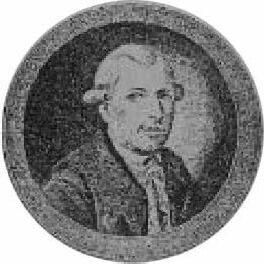
Adam Weishaupt
(1748-1811 e.v.)
by T. Apiryon
Copyright © 1995, 1997 Ordo Templi Orientis. All rights reserved.

German educator, freemason and founder of the Order of Illuminati. Crowley considered him to be a Master of the Temple. Weishaupt was educated by the Jesuits, but later became their bitter enemy. He was given the position of professor of Canon Law at the University of Ingolstadt, Bavaria in 1775, and was the first non-ecclesiastic to hold that position.
Weishaupt's humanistic system of Illuminism, and his Order of the Illuminati, emerged from a small group of anti-royalist, anti-clerical students Weishaupt had established at Ingolstadt. After he became a Freemason in 1777, he began to work towards incorporating his system of Illuminism into that of Masonry, with the aim of extending his social ideals throughout the world. For a time, the Illuminati exercised a considerable amount of influence, but ultimately ended in failure; largely due to vehement ecclesiastical persecution coupled with the incompetence of many of Weishaupt's disciples.
He was banished from Bavaria in 1784, and spent the remainder of his life as a guest of the Duke of Gotha, where he wrote A Picture of the Illuminati (1786), A Complete History of the Persecutions of the Illuminati in Bavaria (1786), An Apology for the Illuminati (1786) and An Improved System of the Illuminati (1787). Most of Weishaupt's biographers, including Barruel and Robison, have been ecclesiastical or royalist partisans, and have therefore vilified and slandered him.
References:
Mackenzie, Kenneth; The Royal Masonic Cyclopaedia [1877], Aquarian Press, Wellingborough 1987
Mackey, Albert G.; Encyclopedia of Freemasonry, Masonic History Co., NY 1909
Robison, John; Proofs of a Conspiracy [1798], Americanist Classics, Los Angeles 1967
Also see here
and here.
2/1/97, 11/14/01
Originally published in
Red Flame No. 2 -- Mystery of Mystery: A Primer of Thelemic Ecclesiastical
Gnosticism
by Tau Apiryon and Helena; Berkeley, CA 1995 e.v.